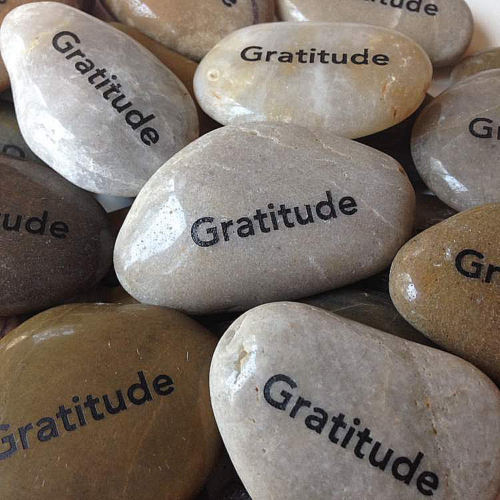One of the pleasures of growing older is the perspective it brings to the store of blessings that multiply in your life. In other words, you become even more grateful for all that you have as you mature.
Researchers have described gratitude as a natural feeling that comes from within; it means being receptive to life. It happens when you feel overwhelmed by a situation or a person in a positive way. Believe it or not, gratitude is the most powerful method of increasing happiness. Becoming a truly grateful person can be the healthiest change you make in your life. Gratitude helps people refocus on what they have instead of what they lack.
Spirituality continues to be a strong influence and major cornerstone among African Americans. Gratitude is considered the gateway to spiritual discipline. The continued recognition and expression of gratitude is an acknowledgment of divine grace and the unconditional love of us by the Most High.
So, how does being grateful potently impact our lives?
Being grateful helps keep you happy.
Study after study has found a robust association between higher levels of gratitude and happiness. Gratitude helps people feel more positive emotions, relish good experiences, deal with adversity, and build strong relationships.
Feeling and expressing gratitude turns our mental focus to the positive, which compensates for our brain’s natural tendency to focus on threats, worries, and other negative aspects of life. As such, gratitude creates positive emotions, like joy, love, and contentment.
Being grateful helps improve your love relationship
Studies have looked at how gratitude can improve love relationships. For example, a study of couples found that individuals who took time to express gratitude for their partner felt more positive toward the other person and felt more comfortable expressing concerns about their relationship.
Being grateful helps you make new friends
Thanking folks and showing appreciation for what they do will help you win friends, according to a 2014 study published in the journal Emotion. Thanking a new acquaintance for their help makes them more likely to seek an ongoing social relationship with you. An act of gratitude provides a valuable signal that you are someone with whom a high-quality relationship could be formed.
Being grateful helps keep you healthy
“Gratitude…can be an incredibly powerful and invigorating experience,” says Jeff Huffman, Ph.D., Associate Professor of Psychiatry at Harvard Medical School. “There is growing evidence that being grateful may not only bring good feelings. It could lead to better health.”
People who are grateful report fewer health complaints than their less grateful counterparts. In one study, more grateful participants reported fewer health problems (such as headaches, gastrointestinal problems, respiratory infections, and sleep disturbances). A similar study concluded that feeling grateful helped participants experience fewer physical symptoms, including headaches, dizziness, stomach aches, and runny noses.
Expressing gratitude might help keep our hearts healthy, too, according to Paul Mills, Ph.D., a family medicine and public health professor at the University of California San Diego School of Medicine. Dr. Mills has been researching behavior and heart health for decades. He conducted a study where 186 men and women were recruited with an average age of 66, who had some degree of heart damage.
Through blood tests, Mills measured levels within the body that respond to injury, or plaque buildup in the arteries. He discovered lower levels among those who expressed gratitude — an indication of better heart health.
Being grateful helps you sleep better
Psychologists Robert Emmons and Michael McCullough asked people with neuromuscular disorders to make nightly lists of things for which they were grateful. After three weeks, participants reported getting longer, more refreshing sleep. With positive thoughts as a lullaby, you’re more likely to drift off into a peaceful slumber.
Being grateful helps you grieve
Grieving with gratitude lets us appreciate the things we still have; it can be a healing tool.
Being grateful for what remains after you have experienced a loss can be a powerful way to deal with and heal that loss. Focusing your attention to how your life was enriched because that person was in it, for example, rather than on the vacuum the loss created, is one powerful and healthy approach to confronting grief. Expressing gratitude towards those who supported/comforted you is key in healing the pain from such a loss.
Being grateful helps with job loss
Gratitude also applies when a person loses their job. Gratitude isn’t about denying the pain of such a challenging experience; it’s about broadening your perspective and recognizing that your valuable qualities, both big and small, are still intact. Thanking family and friends for their love and support helps to reduce the pain caused by the crisis, and allows the person to regain the motivation to look for other employment opportunities.
